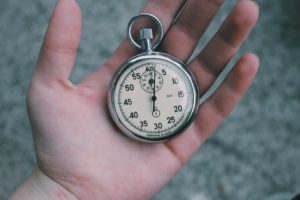 Some of you may remember my post a while back about handwriting my books. It’s a habit that has served me well, and I’ve just finished my fourth book written this way: legal pads and slant-tipped sign pens. I have no way to prove quantitatively that writing this way promotes my creativity, but it would certainly seem to. Never before have I written four books in only thirteen months. But that could be a fluke, right?
Some of you may remember my post a while back about handwriting my books. It’s a habit that has served me well, and I’ve just finished my fourth book written this way: legal pads and slant-tipped sign pens. I have no way to prove quantitatively that writing this way promotes my creativity, but it would certainly seem to. Never before have I written four books in only thirteen months. But that could be a fluke, right?
When I began this handwriting journey, as soon as I had transcribed the words from the pad to the computer, I tossed the pad into the recycle bin. The text was safely embedded in Word; I didn’t need the handwritten words any more. It was my husband’s idea that I save them. For posterity, he said. Yeah, like anyone’s going to care, I thought, but I did start saving them. Then, with my last book, I got another idea. I wrote down the date I started each pad. I had always taken casual note of how long it took me to write a book, sometimes nine months, sometimes three, but I never clocked it exactly. This time, when I finished the book, I actually figured out the word count of each pad and using the dates, calculated how many words a day I was writing. Continue reading “How Fast Do You Write?”

 I’m writing a particularly dramatic book right now with its fair share of tragedy and sadness. The story concerns an elderly lady with Alzheimer’s but then goes deeper than that, into family secrets and how they hurt everyone involved. Although I’m injecting lighter moments into it here and there, there’s no denying it’s a depressing subject. Every time I write a serious passage, I can feel it in my body. I feel heavy, low on energy, pessimistic. I might leave the book to go do some household chore and still feel the looming heaviness of it, as if I’d just heard that someone was dying. I can pinpoint where it’s coming from, of course, but that doesn’t dispel it. Then I have to ask myself: Do I want to dispel it?
I’m writing a particularly dramatic book right now with its fair share of tragedy and sadness. The story concerns an elderly lady with Alzheimer’s but then goes deeper than that, into family secrets and how they hurt everyone involved. Although I’m injecting lighter moments into it here and there, there’s no denying it’s a depressing subject. Every time I write a serious passage, I can feel it in my body. I feel heavy, low on energy, pessimistic. I might leave the book to go do some household chore and still feel the looming heaviness of it, as if I’d just heard that someone was dying. I can pinpoint where it’s coming from, of course, but that doesn’t dispel it. Then I have to ask myself: Do I want to dispel it?  I’ve noticed lately that my brain is composed of compartments. Boxes, if you will. It began back when I was working a day job. I’d get in my car in the morning, drive to work, and practically solve all the problems of the world in that 25-minute reverie. I’d get phenomenal ideas for a new book, polish dialog in an existing one, remind myself to tweet and Facebook about a promo I was running. Brimming with ideas and good intentions, I’d dash into work and …
I’ve noticed lately that my brain is composed of compartments. Boxes, if you will. It began back when I was working a day job. I’d get in my car in the morning, drive to work, and practically solve all the problems of the world in that 25-minute reverie. I’d get phenomenal ideas for a new book, polish dialog in an existing one, remind myself to tweet and Facebook about a promo I was running. Brimming with ideas and good intentions, I’d dash into work and … 